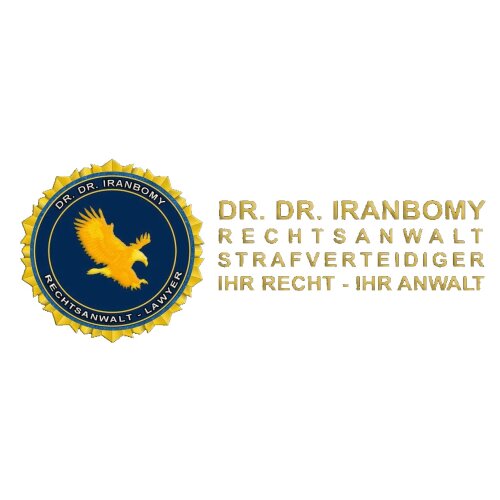Best Sanctions & Export Controls Lawyers in Frankfurt am Main
Share your needs with us, get contacted by law firms.
Free. Takes 2 min.
List of the best lawyers in Frankfurt am Main, Germany
About Sanctions & Export Controls Law in Frankfurt am Main, Germany
Sanctions and export controls are critical aspects of international trade law, strictly regulating the movement of goods, technology, and services across borders. In Frankfurt am Main, a major financial and commercial hub in Germany, these laws help ensure compliance with European Union regulations and German national legislation. Sanctions can be imposed for various reasons, often targeting specific countries, entities, or individuals in the interest of national security, foreign policy, or international peace. Export controls govern the transfer of specific goods, technologies, and software, especially those with potential military or dual-use applications. Navigating these laws is essential for businesses and individuals engaged in cross-border activities in Frankfurt am Main.
Why You May Need a Lawyer
Dealing with sanctions and export controls can be highly complex, particularly for companies that engage in international trade or have partners abroad. Legal assistance may be crucial in the following situations:
- Understanding whether a particular transaction or export is subject to sanctions or export control regulations.
- Applying for necessary licenses or permits to export restricted goods or technologies.
- Responding to government investigations concerning potential sanctions breaches or export control violations.
- Assessing the risks and compliance requirements when entering new markets or working with foreign customers.
- Designing and implementing compliance programs to avoid accidental violations.
- Handling the consequences of alleged violations, including fines, criminal charges, or reputational damage.
Local Laws Overview
In Frankfurt am Main and throughout Germany, sanctions and export controls are primarily governed by a combination of European Union regulations and German national law. Key regulatory frameworks include:
- European Union Sanctions: The EU regularly imposes sanctions through regulations that are directly applicable in all member states, including Germany. These may relate to specific countries, organizations, or sectors.
- German Foreign Trade and Payments Act (AWG): This is the central piece of German legislation regulating trade in goods, services, capital, and technology. It includes national rules on export controls and compliance with international sanctions.
- German Foreign Trade and Payments Ordinance (AWV): This ordinance details the specific mechanisms and procedures for implementing the AWG, outlining the licensing requirements and listing restricted items.
- BAFA (Federal Office for Economic Affairs and Export Control): BAFA is the primary authority responsible for licensing and the enforcement of export control regulations in Germany.
Local enforcement in Frankfurt am Main is strict due to the city's significance as a banking and trading center. Companies and individuals must operate in line with both EU and German national laws, and be aware of sector-specific restrictions or embargoes that may apply.
Frequently Asked Questions
What are sanctions and export controls?
Sanctions are legal restrictions imposed by governments or international bodies to restrict dealings with specific countries, organizations, or individuals, usually for reasons related to foreign policy or security. Export controls regulate the transfer of specific goods, services, and technologies, especially those with potential military or security applications.
Who enforces sanctions and export controls in Frankfurt am Main?
Sanctions and export controls are enforced by the Federal Office for Economic Affairs and Export Control (BAFA), customs authorities, and other relevant agencies. Local enforcement may also involve authorities in Hesse, the federal state where Frankfurt is located.
What goods or services are typically subject to export controls?
Items subject to export controls include military goods, dual-use items (which can be used for both civilian and military purposes), controlled technologies, sensitive software, and certain chemicals or biological materials.
How do I determine if my products or services are affected by sanctions or export controls?
You need to refer to the relevant EU, UN, and German regulations, as well as the controlled goods lists maintained by BAFA. A lawyer can assist in conducting a thorough analysis.
What are the possible penalties for violations?
Violating sanctions or export control regulations can result in severe penalties, including substantial fines, criminal charges, and reputational harm. For companies, this may mean business restrictions or loss of licenses.
Are there any exemptions or licenses available?
Yes, in some cases, exemptions or specific licenses can be obtained from BAFA for certain transactions that would otherwise be restricted. The process for obtaining a license is highly regulated and often requires detailed documentation.
Can financial transactions be affected by sanctions?
Absolutely. Financial transactions, including payments, financing, or investments, can be prohibited or restricted under applicable sanctions regimes, especially if related to sanctioned entities or sectors.
Do export controls apply to intangible goods, such as software or technology transfer?
Yes, export controls can apply to the transmission of controlled software, technology, or know-how across borders, even if transferred electronically.
What should I do if my business is under investigation for a sanctions violation?
Seek legal advice immediately. A lawyer can guide you through the investigation, protect your rights, and help respond to inquiries or enforcement actions by the authorities.
How can I ensure ongoing compliance with sanctions and export controls?
Establish robust compliance programs, conduct regular training for staff, monitor regulatory updates, and consult legal professionals regularly to remain informed of legal changes that may affect your business activities.
Additional Resources
If you need further information or support regarding sanctions and export controls in Frankfurt am Main, the following resources may be useful:
- Federal Office for Economic Affairs and Export Control (BAFA): The main authority for export licensing and compliance guidance in Germany.
- German Customs Administration: Provides information on customs and trade compliance in Germany.
- European Union Sanctions Map: An official EU resource outlining all the sanctions in force across the EU.
- German Chambers of Industry and Commerce (IHK Frankfurt): Offers support and informational events for businesses in Frankfurt am Main engaged in international trade.
- Specialist law firms: Local law firms in Frankfurt am Main with experience in international trade law, sanctions, and export controls.
Next Steps
If you believe you require legal assistance regarding sanctions and export controls in Frankfurt am Main, consider the following steps:
- Gather all relevant information about your business activity or the specific transaction in question.
- Identify whether you might be dealing with restricted goods, countries, or entities.
- Consult with a specialist lawyer in international trade law or sanctions and export controls. Many firms offer initial consultations to discuss your situation.
- Implement recommendations for compliance, such as enhanced due diligence or applying for licenses, as advised by your legal counsel.
- Stay informed about ongoing legal changes in sanctions and export control regulations by subscribing to updates from BAFA or industry associations.
By taking a proactive approach and seeking expert legal advice when necessary, you can protect your business interests and ensure compliance with the complex legal landscape surrounding sanctions and export controls in Frankfurt am Main, Germany.
Lawzana helps you find the best lawyers and law firms in Frankfurt am Main through a curated and pre-screened list of qualified legal professionals. Our platform offers rankings and detailed profiles of attorneys and law firms, allowing you to compare based on practice areas, including Sanctions & Export Controls, experience, and client feedback.
Each profile includes a description of the firm's areas of practice, client reviews, team members and partners, year of establishment, spoken languages, office locations, contact information, social media presence, and any published articles or resources. Most firms on our platform speak English and are experienced in both local and international legal matters.
Get a quote from top-rated law firms in Frankfurt am Main, Germany — quickly, securely, and without unnecessary hassle.
Disclaimer:
The information provided on this page is for general informational purposes only and does not constitute legal advice. While we strive to ensure the accuracy and relevance of the content, legal information may change over time, and interpretations of the law can vary. You should always consult with a qualified legal professional for advice specific to your situation.
We disclaim all liability for actions taken or not taken based on the content of this page. If you believe any information is incorrect or outdated, please contact us, and we will review and update it where appropriate.














